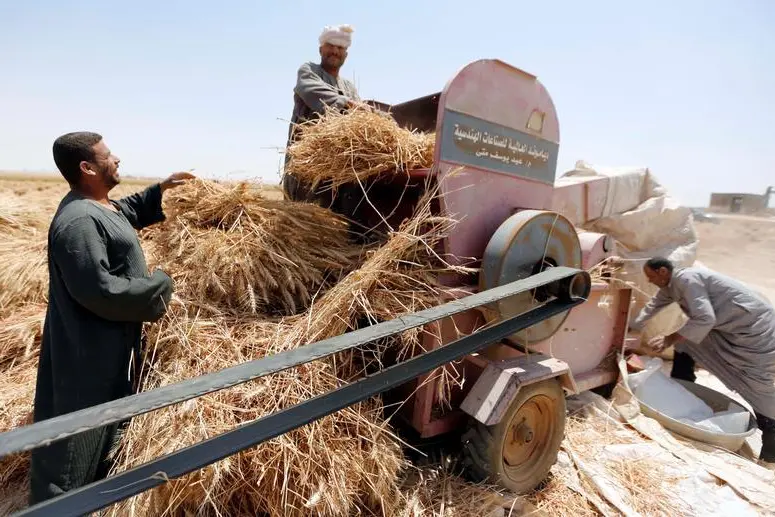PHOTO
The Egyptian government has imposed a ban on exports of key staples including wheat, flour, pasta, fava beans and lentils as the country seeks to safeguard food reserves amid the Russia-Ukraine war.
The ban will be in effect from March 11 and is expected to last for three months, according to a government statement.
Egypt, the world’s largest wheat importer, relies on the two warring countries for 60 percent of its wheat supply. This supply is mainly used to provide subsidized bread to more than 70 million Egyptians.
Since the war started, the Egyptian government has been sending reassurances to the public that the country’s wheat reserves can cover up to four months.
However, concerns keep mounting over spiraling wheat prices around the globe as the war continues. Last week, wheat traded in Chicago, the international benchmark, has jumped more than 50 percent, reaching $13.40 a bushel. In the meantime, European wheat in Paris hit another record of €406 per tonne.
Earlier, Egypt’s General Authority for Supply Commodities (GASC), the state buyer of grains, had to cancel two tenders of wheat because of fluctuating prices. In the meantime, it sought to purchase wheat from Romania rather than Ukraine. For the sake of import diversification, the Ministry of Trade also loosened quality restrictions on wheat imports.
The price of unsubsidized bread has already risen, putting more pressure on consumers who are already struggling with soaring inflation rates. On Thursday, Egypt’s Central Agency for Public Mobilization and Statistics (CAPMAS) announced the annual inflation rate in February hit 10 percent due to the rising global food and energy prices.
For nearly a decade, Egypt has been working on increasing its local production by dedicating more agricultural area to wheat cultivation. According to CAPMAS, wheat imports dropped to $271.9 million in November 2021 from $289.7 million same month the previous year.
The agency also announced that local wheat production has increased by more than 6 percent, reaching 9.1 million tons in 2019/2020 compared to 8.6 million tons in 2018/2019.
(Reporting by Noha El Hennawy, editing by Seban Scaria seban.scaria@lseg.com)





















